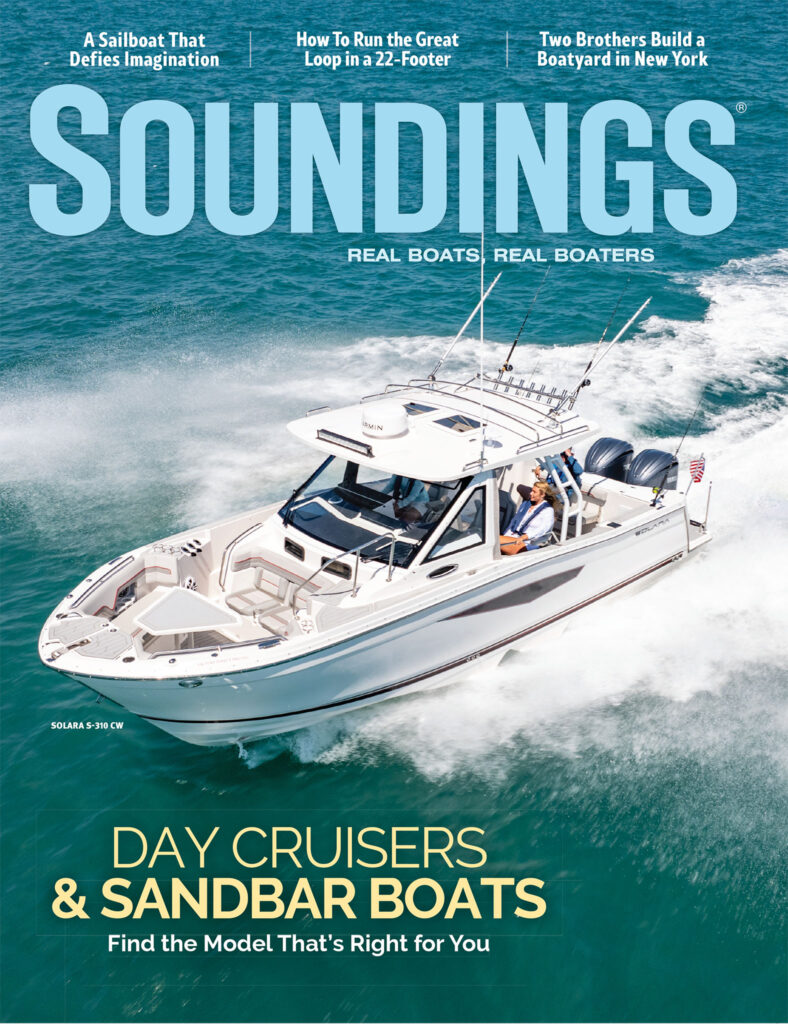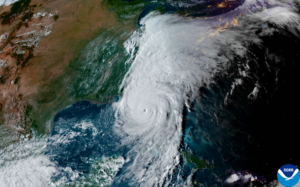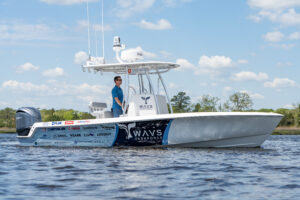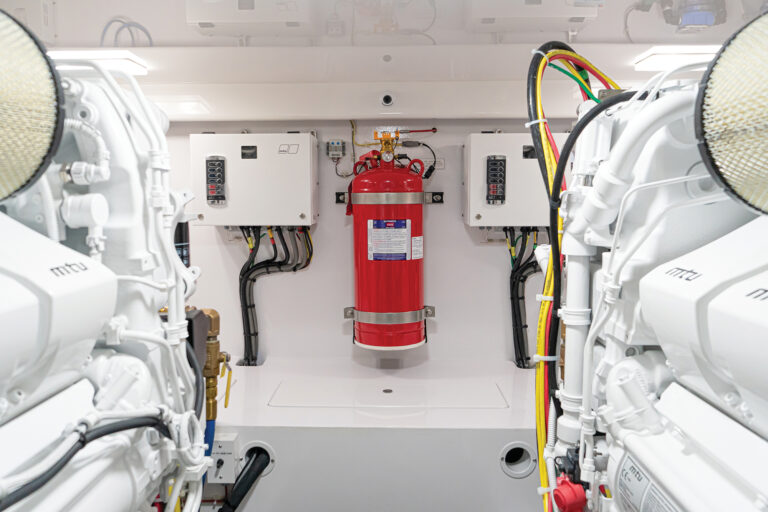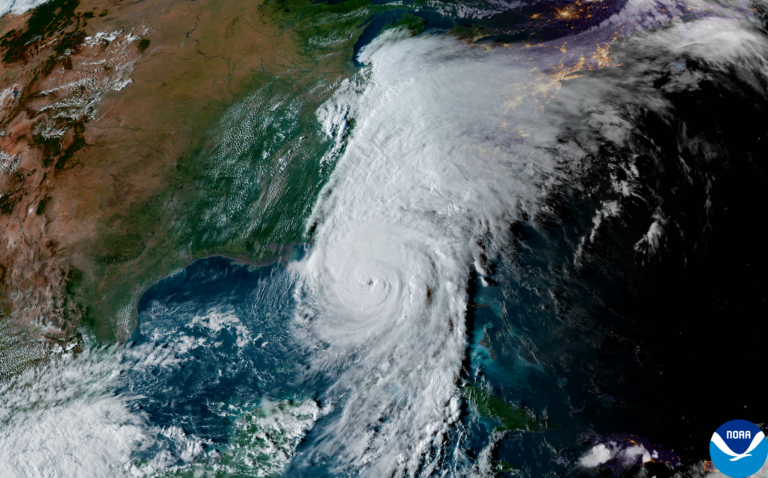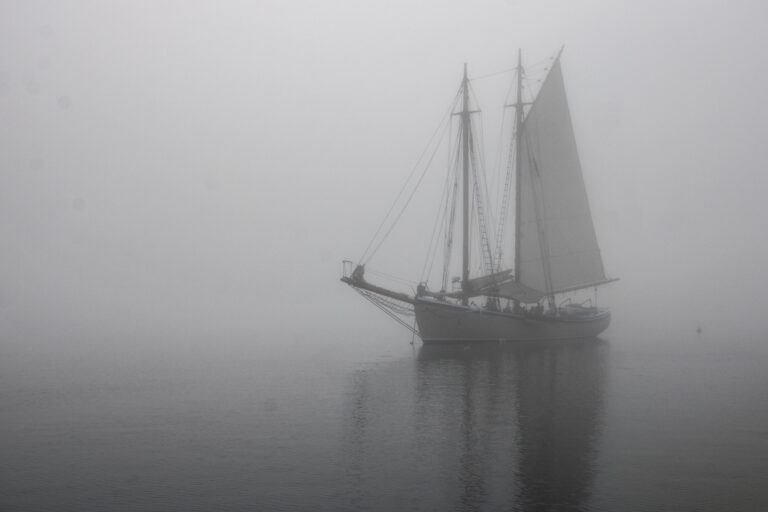Coast Guardsman who died in January is honored for his bravery and humility in famous sinking
When Bernie Webber set out as coxswain on a small boat to rescue 33 seamen in 60-foot seas, he didn’t do it for glory or honor. It was just his job.

Webber, who died of a heart attack Jan. 25 at home in Melbourne, Fla., was one of four Coast Guard members who went to rescue the crew of the Pendleton, an oil tanker that had cracked in half during a vicious nor’easter Feb. 18, 1952, off the coast of Cape Cod, Mass.
“Originally, only Bernie was to be given the Gold Lifesaving Medal, the highest accolade at that time, while the other three were to be recognized on a lesser level,” says Capt. W. Russell Webster, a retired member of the U.S. Coast Guard and friend of Webber’s. “When he found out the others were only to get the Silver Lifesaving Medal, he refused to accept his. That’s the kind of person he was.”
In the end, all four members of the crew received the top honor, which was extraordinary at that time.
In 2002, Webster organized a reunion of the four crewmembers involved in the rescue, where all four were reissued their medals.
Webster calls the Pendleton rescue one of the Top 10 significant rescues of all time — No. 3, in fact. The Pendleton rescue is eclipsed, he says, only by the 520 passengers rescued off a cruise ship in Alaska in 1983, and [Hurricane] Katrina where 33,000 people were rescued from rooftops.
“But in my book this is the greatest small-boat rescue in history.”
Bernie Webber served in the Coast Guard into the mid-1960s, spending more than half of his life on the water, and served a tour of duty in Vietnam. His wife, Miriam, says she will always remember her husband’s humility in his job.

“He never bragged about the [Pendleton] rescue. He never spoke about or discussed it,” says Miriam. “He never spoke to anyone about it. He did it to go out and save lives, not for praise. He was honest, diligent and loved the Coast Guard — he was a true Coast Guardsman.”
Miriam says her husband was a quiet man who was good to his family. She says his passing was quite a shock to everyone, considering he had no history of heart illness.
The last surviving member of the rescue crew is Andy Fitzgerald, 78, who lives in Centennial, Colo. The other members of the crew were Richard Livesey and Ervin Maske.

Fitzgerald remembers being at Lifeboat Station Chatham that night. Word came in that the 503-foot, 10,000-ton tanker the SS Pendleton was broken in two out past the hazardous Chatham sandbar. Thirty-three men were at the stern awaiting rescue. Seas were extremely high and rough with northwest winds at around 40 and 50 mph.
Webber, 24 at the time, was asked to pick a crew and head out to search for survivors.
“It was boring hanging around the station. I really wanted to go out, truthfully,” says Fitzgerald. “I didn’t know what we were in for, but I knew we were going to get really, really cold and really, really wet.”
The water temperature that night was about 39 degrees, Fitzgerald says. Their vessel was to be the CG-36500, a 36-foot wooden lifeboat powered by a 90-hp engine. Fitzgerald was in charge of the searchlight at the bow of the rescue boat so he wasn’t really paying much attention to the rest of the crew, but everyone aboard knew the biggest challenge was getting over the sandbar surrounding Chatham, Mass.
“I remember one wave lifting me right up in the air about a foot,” says Fitzgerald. “One of the waves hit the canopy where Bernie was and smashed right through the windshield, taking the compass with it.”

Even worse, the engine failed more than once during the trip, the lurching motion of the boat sloshing the fuel away from the engine intake. He even saw a few flakes of snow during the ride out there.
“Bernie was a good coxswain. I knew if anyone could get us over that sandbar it was him,” says Fitzgerald. “Once we were over, we saw the wreck — this huge hunk of steel 30 or 40 feet high that looked like it was coming toward us. It was kind of scary. … [The wreck] was almost hitting the sandbar.”
The next question was how to try to get the men off the boat. The crew thought about tying a line to the vessel, but with the horrific conditions it seemed the line would break. As they were discussing rescue options, the crew spotted a Jacob’s ladder thrown off the side of the ship. The survivors worked their way down the ladder and, one by one, they jumped into the 36-footer.
“Bernie did a great job of keeping the vessel close to the wreck,” says Fitzgerald. “The minute one man was on the boat, the next one would come off and do the same thing.”
After about 20 men had squeezed into the boat, the crew began to wonder if they could fit the 12 remaining men.
“We talked about turning around and then coming back, but we didn’t know if we’d be able to get over that sandbar a second time on the way back, let alone again on the way back out,” says Fitzgerald. “So Bernie decided to stay and take them all off the ship.”

The crew rescued all the men but one, a man who missed the boat and slipped into the icy water.
“I’d say the fellow was about 350 pounds, and he had been leery about going down that rope, which I don’t blame him,” says Fitzgerald. “He hit the side of the boat and flopped into the water, but grabbed onto one of the looped ropes on the side of the boat.”
They tried to get him back into the boat, but the man’s eyes were closed and he was unresponsive. He soon let go of the rope and slipped into the water.
“It all happened in a minute or two,” says Fitzgerald. “He was the only one that died. We all thought about him for years.”
Fitzgerald says the ride back to the station was a bit of a blur.
“I had a lot of confidence in Bernie. I thought we would get back, I really did,” says Fitzgerald. “But I remember at one point looking down and wondering how long I would last in the water. Probably not very long.”
“[Webber] often said that during that night of the rescue, God’s hand was on his shoulder,” says Webster. “He always had a respect for higher powers.”

Webster helped write a book about the rescue, “The Pendleton Disaster Off Cape Cod: The Greatest Small Boat Rescue in Coast Guard History,” with historian Theresa Mitchell Barbo.
While writing the book, Barbo worked closely with Webber and the other surviving crewmembers.
“For a writer, it is unusual to show the subject a major piece written about him before it is published, but I wanted this to be the publication of record, and I felt that I needed his full support and consent,” says Barbo. “He read every word and provided material from his personal archives. I am very grateful he was alive to see the second edition come out.”
The second edition was released this year; all author proceeds benefit the Coast Guard Academy in New London, Conn.
Webber’s death is a true loss to the Coast Guard and to history, says Barbo. It is also the loss of a close friend.
“To me, it is like losing a father figure,” says Barbo. “He was one of the few living bridges of Coast Guard yesteryear and guardian ethos.”
Webber lived in Melbourne with his wife of 58 years, Miriam, and leaves behind a daughter, Patricia Hamilton, and son, Bernard, along with two granddaughters and a grandson.
See related article “The Pendleton Disaster”
This article originally appeared in the April 2009 issue.

